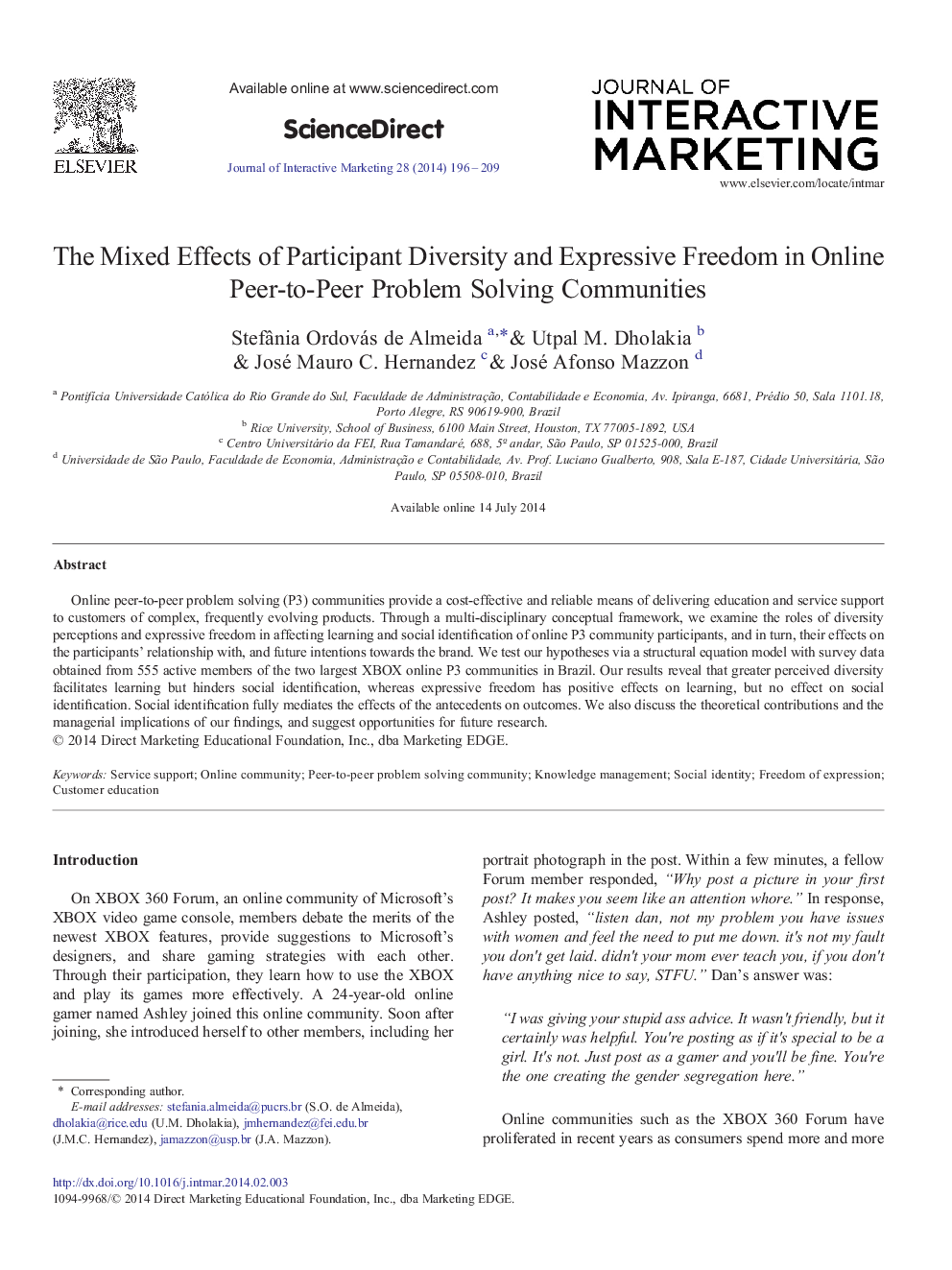| Article ID | Journal | Published Year | Pages | File Type |
|---|---|---|---|---|
| 885995 | Journal of Interactive Marketing | 2014 | 14 Pages |
•Introduces learning and social identification as benefits of participation•Examines participant diversity and expressive freedom's role•Identifies outcomes for sponsor brands of online P3 communities
Online peer-to-peer problem solving (P3) communities provide a cost-effective and reliable means of delivering education and service support to customers of complex, frequently evolving products. Through a multi-disciplinary conceptual framework, we examine the roles of diversity perceptions and expressive freedom in affecting learning and social identification of online P3 community participants, and in turn, their effects on the participants' relationship with, and future intentions towards the brand. We test our hypotheses via a structural equation model with survey data obtained from 555 active members of the two largest XBOX online P3 communities in Brazil. Our results reveal that greater perceived diversity facilitates learning but hinders social identification, whereas expressive freedom has positive effects on learning, but no effect on social identification. Social identification fully mediates the effects of the antecedents on outcomes. We also discuss the theoretical contributions and the managerial implications of our findings, and suggest opportunities for future research.
